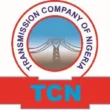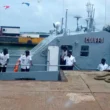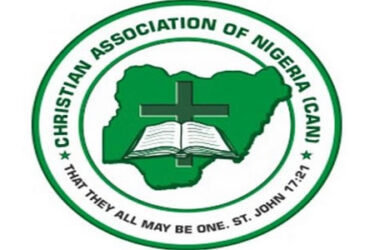Over the past five months, security forces operating under Operation Delta Safe (OPDS) have dismantled more than 570 illegal crude oil refining sites and arrested 681 individuals connected to oil theft and other crimes across the Niger Delta region.
At a recent press briefing in Yenagoa, Rear Admiral N.M. Medugu, Commander of OPDS, shared the task force’s progress. Represented by Commodore Patrick Meteke, the Maritime Component Commander, he noted that the military and other agencies have made significant gains in reducing oil-related crimes and improving national crude oil output.
According to Meteke, security personnel also took down 918 illegal storage units, impounded 194 wooden boats, and intercepted 71 vehicles and tankers used for transporting stolen or illegally processed petroleum. He noted that about 3.5 million litres of crude oil and over 1.5 million litres of illegally refined diesel were seized during the operations.
Other recovered products include 55,635 litres of kerosene and 91,760 litres of petrol. These figures point to the widespread scale of illegal refining and oil theft in the region.
In addition to cracking down on criminal operations, the OPDS recovered 653 illegal weapons and intervened in more than 100 disputes between oil companies and host communities. Meteke noted that these community-focused efforts helped maintain peace and prevented disruptions in oil production.
He reported that OPDS achieved an 89% success rate in curbing oil theft in early 2025. As a result, Nigeria’s crude oil production climbed from 1.2 million barrels per day in mid-2024 to 1.85 million barrels per day by May 2025.
The increase is partly due to improved conditions along major pipelines such as the Trans Niger Pipeline, Trans Ramos Pipeline, and Trans Escravos Pipeline. Security clearance operations also led to the destruction of 13 camps used by pirates and militants.
While speaking about strategy, Meteke noted that building trust with local communities through non-violent means has helped the task force avoid human rights issues. “Due to the confidence reposed in OPDS by both oil companies and communities, incidents of human rights abuses have been minimal,” he said.
He also mentioned various outreach programs carried out by the task force, including free medical services, scholarship awards to underprivileged students, and canal clearing projects aimed at reducing floods. One such outreach is the annual program in Igbogene, which provides relief items to residents. Other units across the region are running similar efforts.
Meteke also acknowledged the role of Private Security Companies (PSCs) in helping gather intelligence and resolve conflicts, which have made OPDS operations more effective.
On media involvement, he stated: “OPDS relies on the media to inform the public about its operations. The media has been instrumental in publicizing our efforts, such as the recent interception of a large wooden boat carrying about 90,000 litres of crude oil at the Abereke Naval Outpost in Ilaje LGA, Ondo State, on May 15, 2025.”
He praised media coverage for raising awareness about the dangers of pipeline vandalism, illegal oil refining, and other crimes affecting the oil industry.
Finally, Meteke appealed for more operational resources. “We need additional maritime and air assets, more vehicles for mobility—especially for night operations—as criminals mostly operate under the cover of darkness. We also need more gunboats and tactical drones to tackle evolving security threats,” he stated.
Operation Delta Safe oversees security in Delta, Bayelsa, Rivers, and parts of Ondo, Edo, Anambra, Abia, Akwa Ibom, Imo, and Cross River—areas that are central to Nigeria’s oil production and economic stability.










